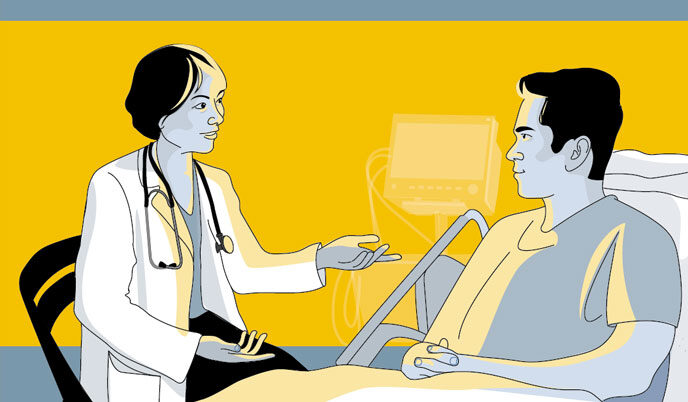
When doctors sit, patients feel better
A new study indicates that the simple act of a doctor sitting in a chair during hospital bedside discussions improved the experience for physicians and patients alike.

Gut inflammation linked to aging and Alzheimer’s disease
A new study by researchers at the University of Wisconsin School of Medicine and Public Health suggests a link between gut inflammation and changes in the brain and declines in memory, further supporting a connection between the gut and brain in Alzheimer’s disease.
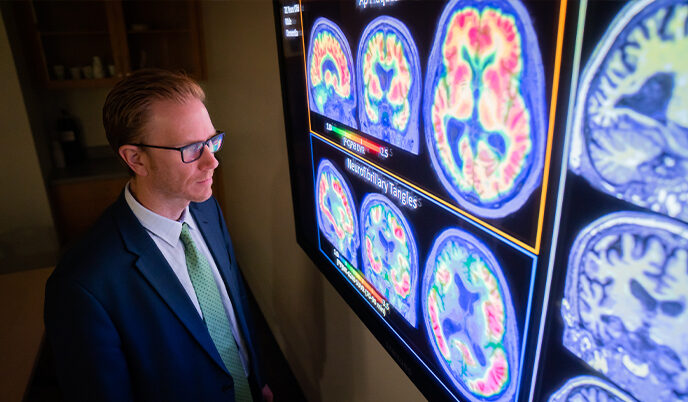
UW–Madison receives $150 million grant to lead nationwide Alzheimer’s disease study
The University of Wisconsin School of Medicine and Public Health has been awarded funding from the National Institutes of Health for a nationwide research initiative to investigate the neurobiology of Alzheimer’s disease and related dementias.
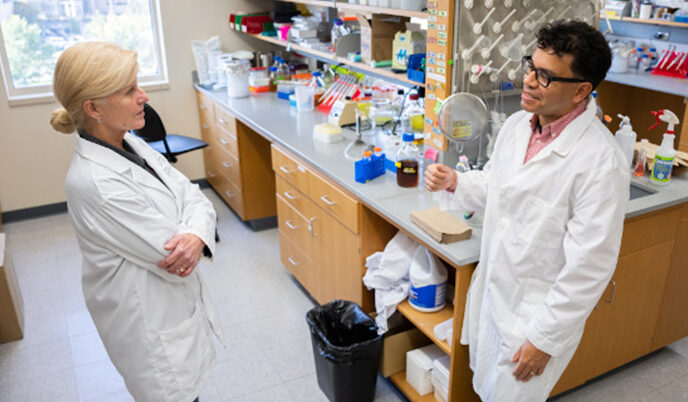
New UW study examines COVID-19 vaccines in people with weakened immune systems
Researchers at the University of Wisconsin School of Medicine and Public Health are exploring the ideal vaccine booster strategy for immunosuppressed patients to protect those at higher risk of severe illness and complications from COVID-19 infection.

UW study links past military service to Alzheimer’s disease
The brains of deceased military veterans had higher levels of two abnormal proteins considered hallmarks of Alzheimer’s disease, suggesting that military veterans face a greater risk for developing Alzheimer’s, according to a new study from the University of Wisconsin School of Medicine and Public Health.
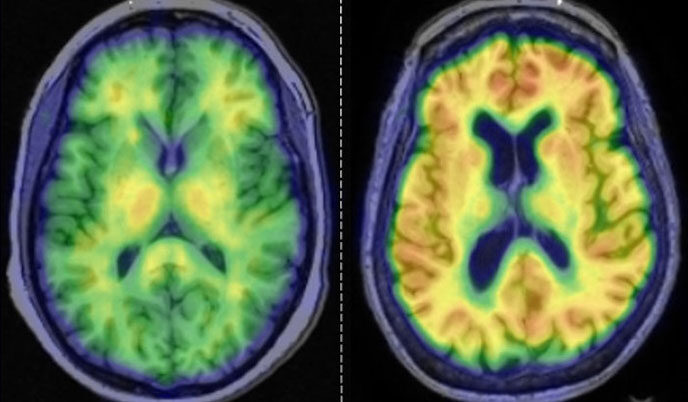
UW study examines potential treatment for Alzheimer’s disease
Researchers at the University of Wisconsin School of Medicine and Public Health are investigating whether the drug leuprolide, which is approved for prostate cancer in men, can be used to treat symptoms of Alzheimer’s disease in women.

UW study seeks IBD patients to study effectiveness of updated COVID-19 vaccines
Researchers at the University of Wisconsin School of Medicine and Public Health are investigating how well the updated monovalent COVID-19 vaccines work for inflammatory bowel disease patients.

Study explores midlife factors associated with blood biomarkers of neurodegeneration and Alzheimer’s disease
Lifestyle and chronic health conditions in middle age, along with a person’s education level, show associations with emerging blood markers of neurodegeneration and Alzheimer’s disease, according to a new study by researchers at the University of Wisconsin School of Medicine and Public Health.

Clinical trial for severe dry mouth treatment launching soon at UW
The UW Health | Carbone Cancer Center and UW Program for Advanced Cell Therapy, or PACT, will soon begin a clinical trial using a recently developed cell therapy to treat severe dry mouth, which is a significant symptom of graft-versus-host disease and Sjögren’s disease.
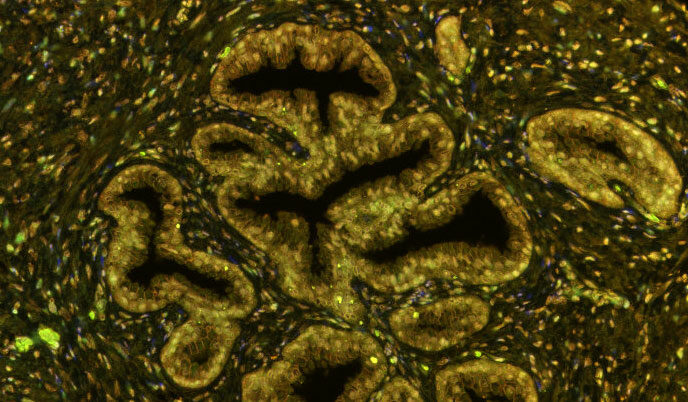
UW Carbone Cancer Center receives SPORE designation, federal grant to support prostate cancer research
University of Wisconsin Carbone Cancer Center will be designated as a Specialized Program of Research Excellence, or SPORE, by the National Cancer Institute (NCI) for research initiatives to advance new prostate cancer treatments.
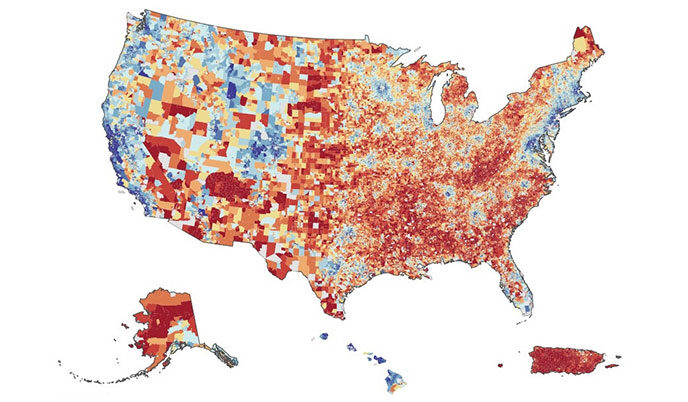
Federal agency uses UW–Madison Neighborhood Atlas research to shape national health policy
A data tool developed by UW–Madison researchers showing health-relevant metrics for every neighborhood in the United States is guiding a national model to help Medicare beneficiaries from under-resourced communities access health care more effectively.

Lupus much more likely to cause cardiovascular problems in Black patients
A population-based study of the autoimmune disease lupus in Black patients shows that the risk of cardiovascular disease is strikingly high in young patients –19 times higher than in non-Blacks in the first 12 years after diagnosis – and may be predicted by a characteristic rash.